Anatomy of an NBA champion: Which 2022 teams fit the statistical profile?
What does a champion look like?
Anyone familiar with the pantheon of NBA champions knows certain teams have dominated - only 13 franchises have won the last 42 titles. But what do those champions have in common? Do they provide a statistical profile we can use to learn about this year's playoff competitors?
While looking for statistical similarities among championship teams to help us evaluate this year's field, we'll use the last 17 seasons. The NBA's current 30-team, six-division scheduling format has been in place since 2004-05. By then, the league had already adopted rules that prioritized offense by eliminating hand-checking and illegal defenses. It's also recent enough to account for the modern importance of 3-point shooting.
Let's dig into the numbers.
Wins
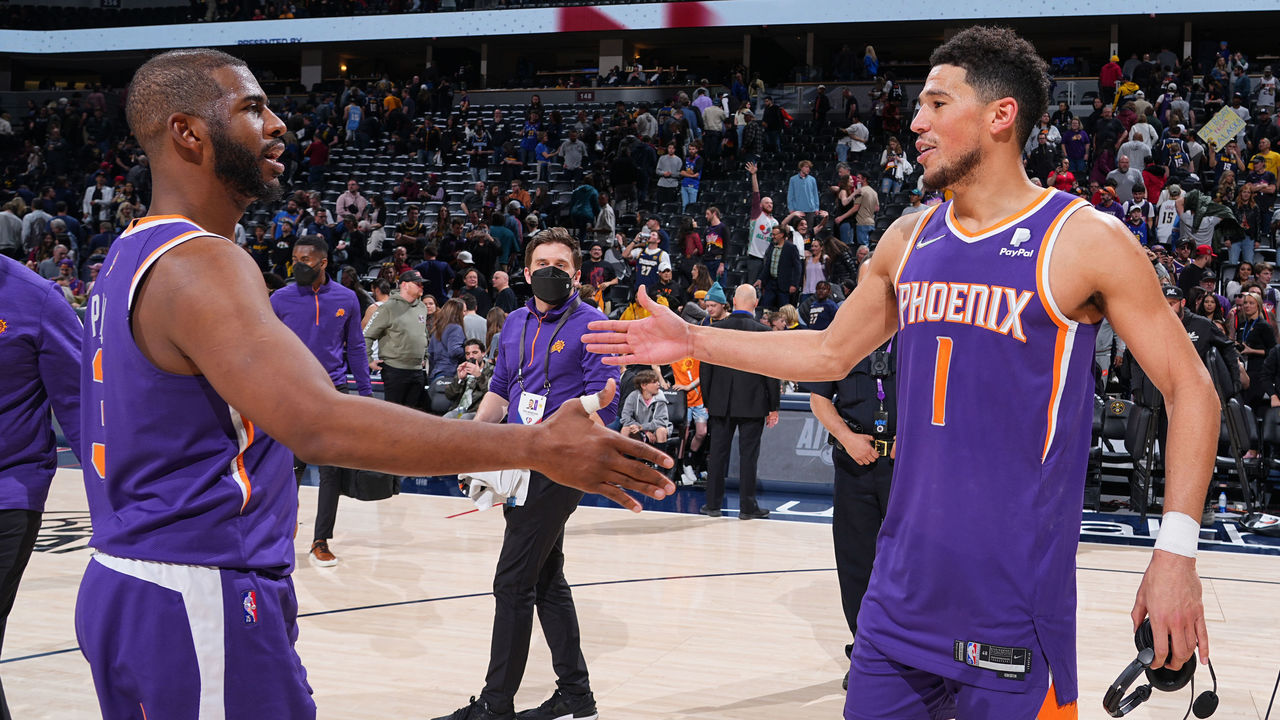
Modern champions have compiled a minimum win percentage of .634 - the equivalent of 52 wins in 82 games - and a top-seven overall record during the regular season.
That might even be a bit conservative since the winning percentage outlier, the 2005-06 Heat, were on a 55-win pace (41-20) after Pat Riley took over coaching duties from Stan Van Gundy and were on a 58-win pace (42-17) with Shaquille O'Neal in the lineup after the big man missed 18 of 20 games to start the campaign. Last year's Bucks, meanwhile, used the regular season as a testing ground to prepare for the playoffs and were always better than their .639 win percentage indicated.
Who fits the bill in 2022: Suns, Grizzlies, Heat, Warriors, Mavericks
Potential outliers: Celtics, Bucks, 76ers
Boston, Milwaukee, and Philadelphia tied for spots six through eight in the overall standings but finished one victory shy of clearing the wins benchmark for modern champions.
Point differential
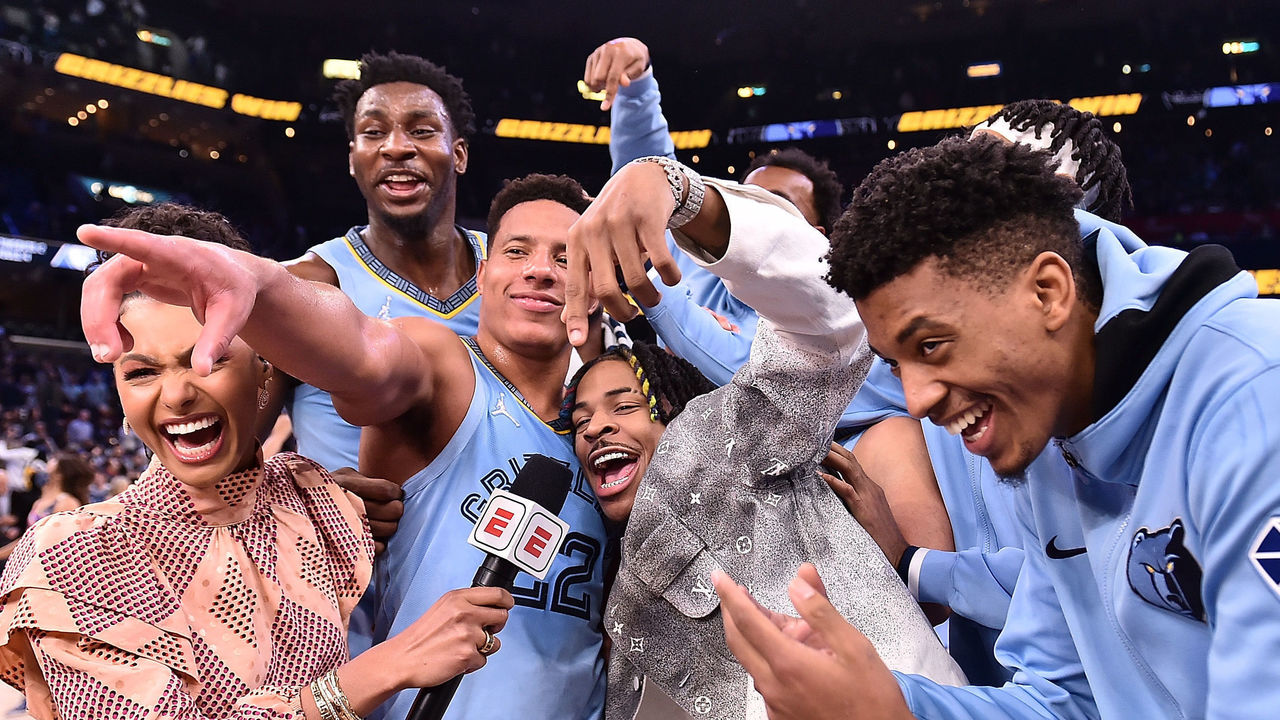
An NBA champion needs to be inside the top eight in both scoring differential and net rating per 100 possessions. Specifically, these previous champions outscored opponents during the regular season by at least 3.9 points per 48 minutes or 4.1 points per 100 possessions. The 2011 Mavs are an obvious outlier here, and a top-five differential might be the more accurate cutoff.
Who fits the bill in 2022: Suns, Grizzlies, Heat, Warriors, Celtics, Jazz
Potential outliers: Mavs, Bucks
Dallas and Milwaukee both finished in the top eight in margin of victory but didn't beat teams by enough to meet the point-differential cutoff. In a season of unusual parity, however, the point-differential bar may not be helpful.
Offense
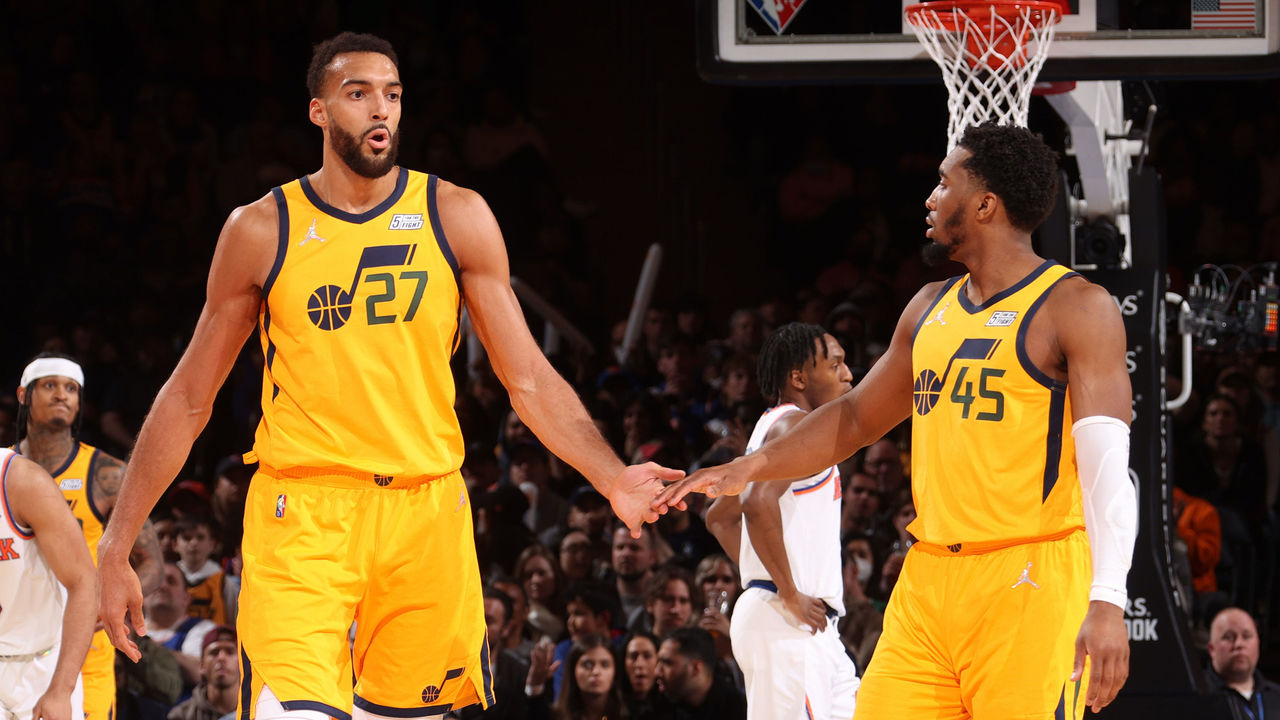
Notwithstanding the 2020 Lakers (Disney Bubble) and the 2010 Lakers, a top-nine offensive rating (points per 100 possessions), a top-six effective field-goal percentage, and a top-20 3-point percentage are all requirements for a championship offense. Dig deeper and you'll find that as NBA offenses have shifted to emphasize the 3-pointer, nine of the last 10 champions finished in the top nine in 3-point shooting.
However, in the interest of consistency, we'll include those two Lakers teams and say the 2022 champion only requires a top-11 offensive rating, a top-15 eFG%, and a top-23 3-point percentage.
Those very modest cutoffs don't really discriminate.
Who fits the bill (expanded version): Suns, Celtics, Bucks, Jazz, Nuggets, Timberwolves, Nets (plus Hawks who have yet to qualify for the main playoff bracket)
Who fits the bill (limited version): Suns, Bucks, Jazz, Nuggets
Potential outliers: Heat, 76ers
The only thing holding the Heat back from qualifying in this category is that they finished mere decimal points behind 11th-ranked Philly in offensive efficiency. As for the Sixers, the team checked the offensive rating and 3-point percentage boxes but finished just outside the top-15 in effective field-goal percentage. Unsurprisingly, Philadelphia easily qualifies as an offensive contender if we were to use the team's numbers since James Harden joined.
Defense
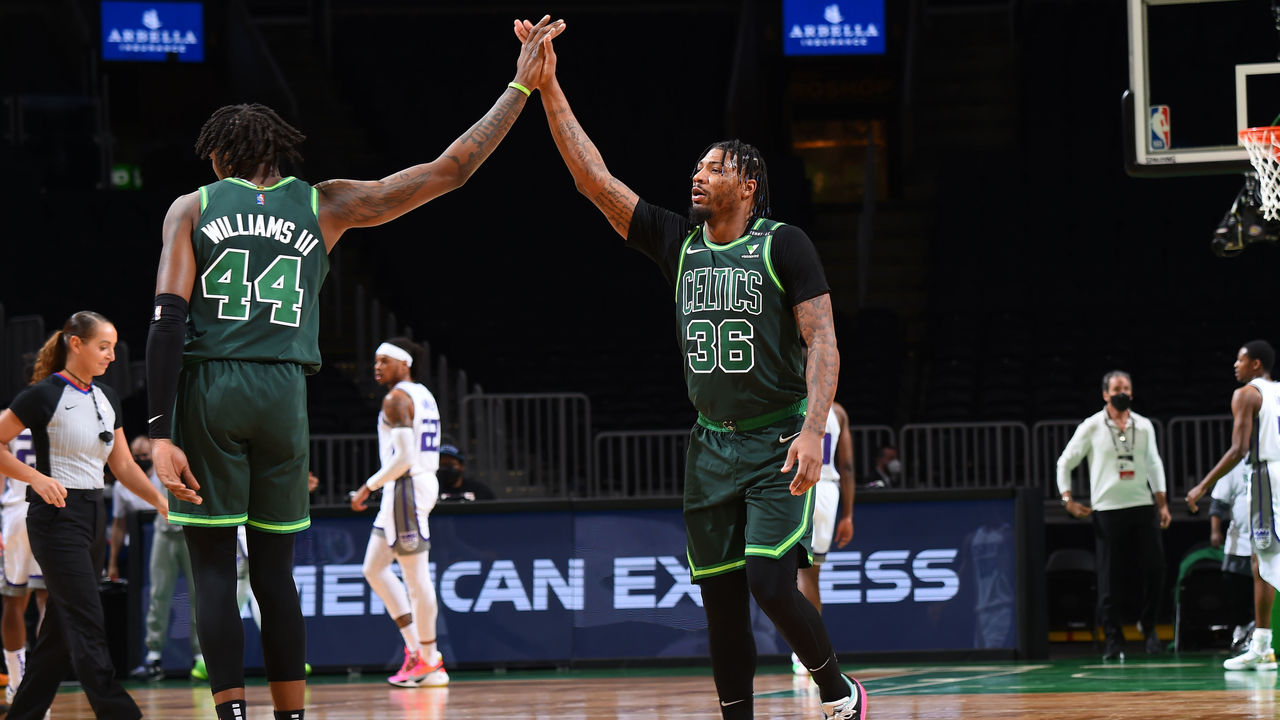
Offense gets all the attention, but every champion in our sample finished in the top 11 on the defensive end, with at least a top-13 mark in opponent effective field-goal percentage. Thirteen of the last 15 champions finished in the top eight in limiting opponents' effective field-goal percentage.
Who fits the bill: Suns, Grizzlies, Heat, Warriors, Mavericks, Celtics, Jazz, Clippers (plus Cavaliers if they qualify)
Potential outliers: 76ers, Raptors
Philly finished just behind the 11th-ranked Knicks in defensive efficiency, but Joel Embiid also took his foot off the gas on defense during the regular season. The Sixers' perimeter D is shoddy, but with Playoff Embiid going full throttle, they might still have the goods to play at a championship level on that end of the court.
As for Toronto, Nick Nurse's lanky, versatile team finished ninth in overall defense but a pedestrian 18th in opponent effective field-goal percentage (which adjusts for the extra value of a 3-pointer). The Raptors' D sustained itself by forcing turnovers and not allowing teams to finish possessions with a shot attempt as opposed to actually limiting the efficiency of those shot attempts.
Star talent
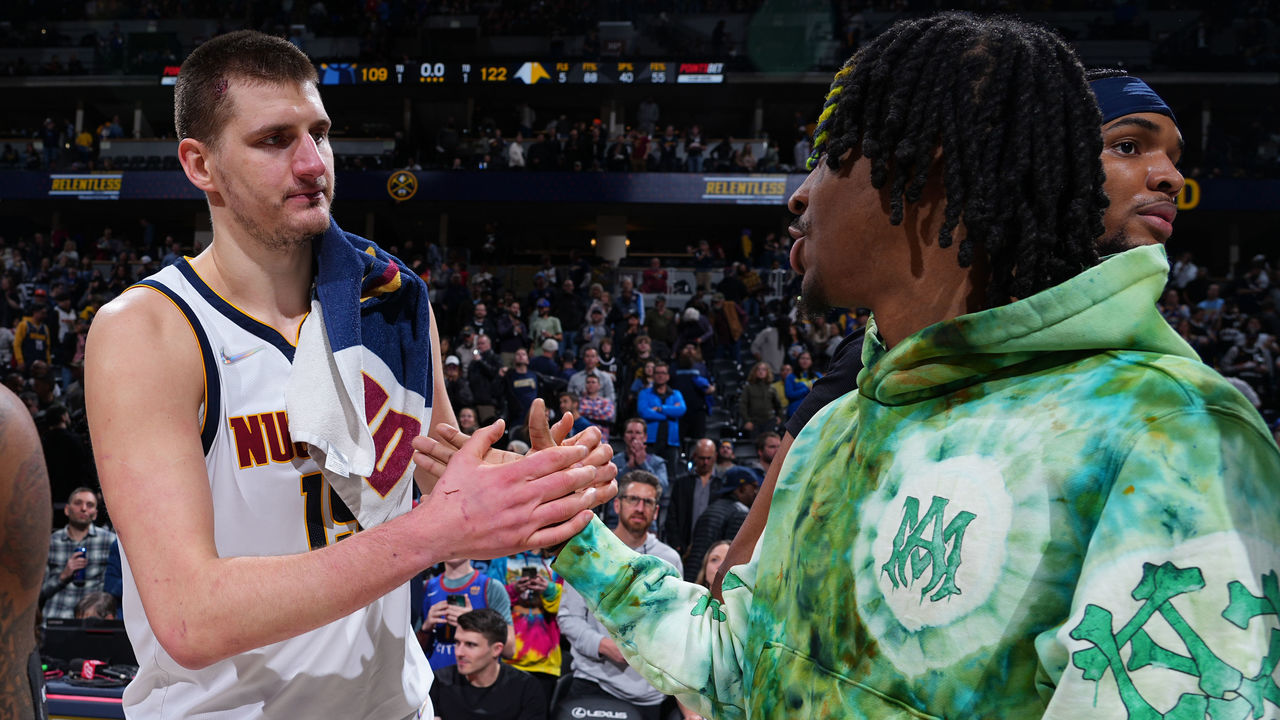
The postseason, and especially The Finals, is about transcendent talent. Depth can carry you to the playoffs and an All-Star can perhaps drag you into the second or third round. But if you want to compete in June, you need a Hall of Fame type - a generational superstar. There's a reason 38 of the last 42 Finals have featured at least one of LeBron James, Tim Duncan, Kobe Bryant, Shaquille O'Neal, Michael Jordan, Magic Johnson, or Larry Bird. Throw in names like Giannis Antetokounmpo, Stephen Curry, Kevin Durant, Kawhi Leonard, Hakeem Olajuwon, and Isiah Thomas, and you get 42 of 42.
There's no way to quantify with 100% accuracy where players rank individually in the NBA. But one fun tool, made famous by Bleacher Report's Andy Bailey, determines how stars stack up based on their average rank across a plethora of catch-all stats. According to that data, each of the last 17 champions has employed a player who ranked in the top 15 during the regular season. When you consider how flawless the 2014 Spurs were, and how much better than the 15th-best player Leonard was in 2019 when missed regular-season games affected his place in the rankings, you realize that a top-10 player - if not top five - is probably what's truly necessary.
You'll also notice every champion featured at least one All-Star, with 13 of the last 17 teams employing more than one.
All 17 champions featured at least one All-NBA selection (10 of 17 had multiple players on the year-end list), and 15 of the last 17 champions boasted at least one All-Defensive team selection. But those awards won't be handed out for weeks, so we can't use them to filter here.
Let's look for playoff teams with a top-15 player this season, according to the average of those aforementioned catch-all stats.
Who fits the bill? Suns, Heat, Warriors, Mavericks, Celtics, Bucks, 76ers, Jazz, Nuggets, Timberwolves, Nets (plus Hawks)
Potential outlier: Grizzlies
Any kind of ranking system that arranges NBA superstars in order will be flawed. Even a system that uses as many metrics as possible can still spit out a curious result where Ja Morant (17th) falls outside the top 15. Morant - the best player on the NBA's second-best team - was likely held back by the fact he missed 25 games this season. But no one doubts Memphis has a top-15 star on its side entering the playoffs.
Home vs. Road
The true power of home-court advantage returns for the 2022 playoffs after two compromised seasons. Historically, a team that excels no matter where it plays has the best chance to contend in the spring, so let's look at the home/road splits of recent champions and compare that data to the splits of this year's teams.
We're looking for teams that dominate at home and have a competitive road record. Modern champions post a minimum home win percentage of .707 while also recording a winning record on the road.
Who fits the bill: Suns, Grizzlies, Heat, Warriors, Mavericks
Potential outliers: Jazz, Raptors
Utah's 29 home wins tied for fourth overall and met the championship cutoff, but the Jazz finished one win shy of the benchmark needed away from home.
The Raptors' 24 road wins finished tied for fourth leaguewide, but their 24-17 home record - their worst since 2013 - held them back in this category. However, Toronto is the only team that played some games in an empty home arena and with constantly changing capacity limits. Though the Raptors performed better in games without fans than they did with spectators, this year's home mark isn't indicative of the home-court advantage that usually comes from The North.
If you're wondering why some other measurements were omitted from this research, I discovered that assist metrics, rebound rates, turnover measures, free-throw frequency, and opponent 3-point percentages didn't produce championship trends as consistently as the statistics cited above. The championship teams we examined often finished in the bottom third in at least one of those categories.
Who's left standing?
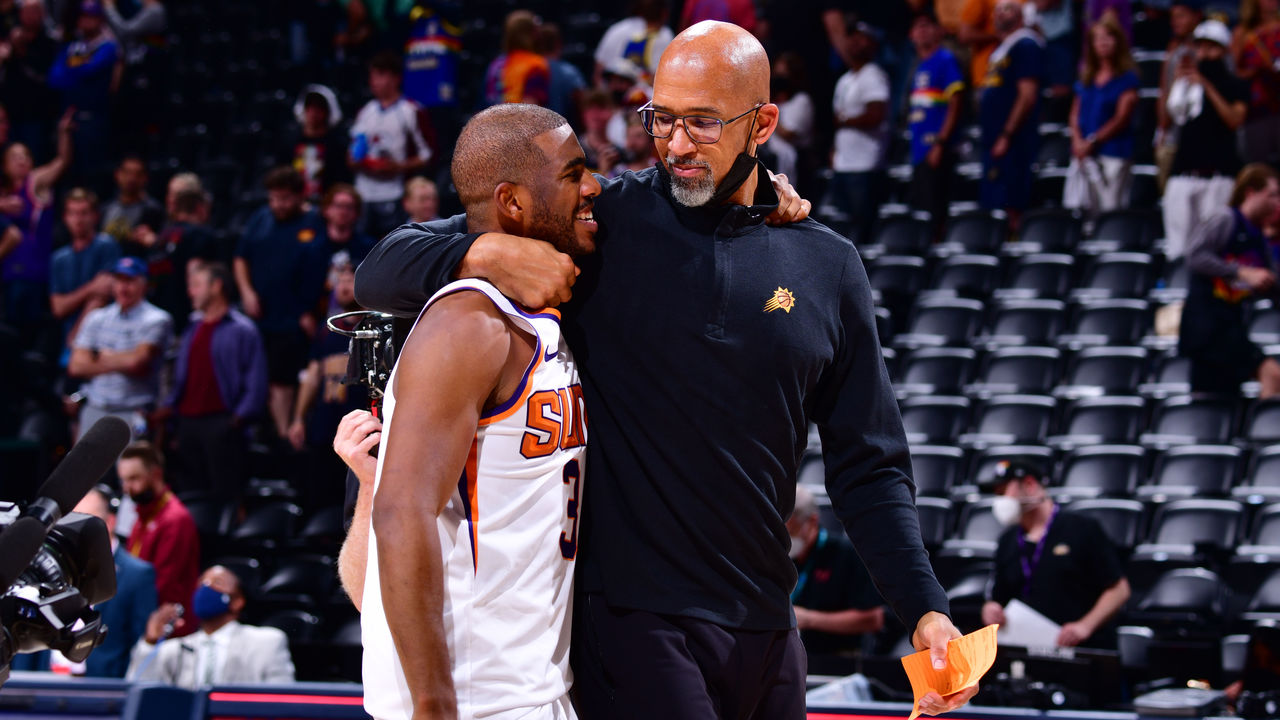
The Suns ran away from the pack this season, finishing eight games clear of second-place Memphis, so it's no surprise that Phoenix is the only team to check every box required of a modern champion.
The league-leading Suns finished with the NBA's best point differential, a top-five offense, a top-three defense, and had more road victories (32) than any team compiled at home. In addition, both Devin Booker and Chris Paul are All-NBA candidates, while Monty Williams and Mikal Bridges are firmly in the discussion for Coach of the Year and Defensive Player of the Year, respectively.
If the numbers - and recent history - tell us anything, it's that the Suns are on their way to finishing what they started when they lost in The Finals last summer.
Potential outliers: Heat, Warriors
Miami finished one spot away in offensive efficiency from joining Phoenix as a team with undeniable championship pedigree. Golden State is held back by the offensive side of the ball. If Steph Curry is good to go for Game 1 against Denver, however, it's hard to imagine Curry can't once again spearhead a championship attack, especially with the recent return of Draymond Green, a rounding-into-form Klay Thompson, and Most Improved Player candidate Jordan Poole alongside him.
Just happy to be here: Bulls, Raptors (plus Pelicans if they qualify)
Toronto and Chicago were the only surefire playoff teams to not check at least one box, but the Raptors' defensive ceiling and consistent play away from home should give Canadian fans hope that the team is closer to contender status than its performance in this statistical exercise indicates. The Raps also finished the season on a 34-17 tear, playing at a 55-win pace for three-and-a-half months.
The Bulls, on the other hand, lost 15 of their final 22 contests, were a .500 team from Dec. 27 onward, and didn't even appear on the radar for any of the six categories examined.
Joseph Casciaro is a senior writer for theScore.